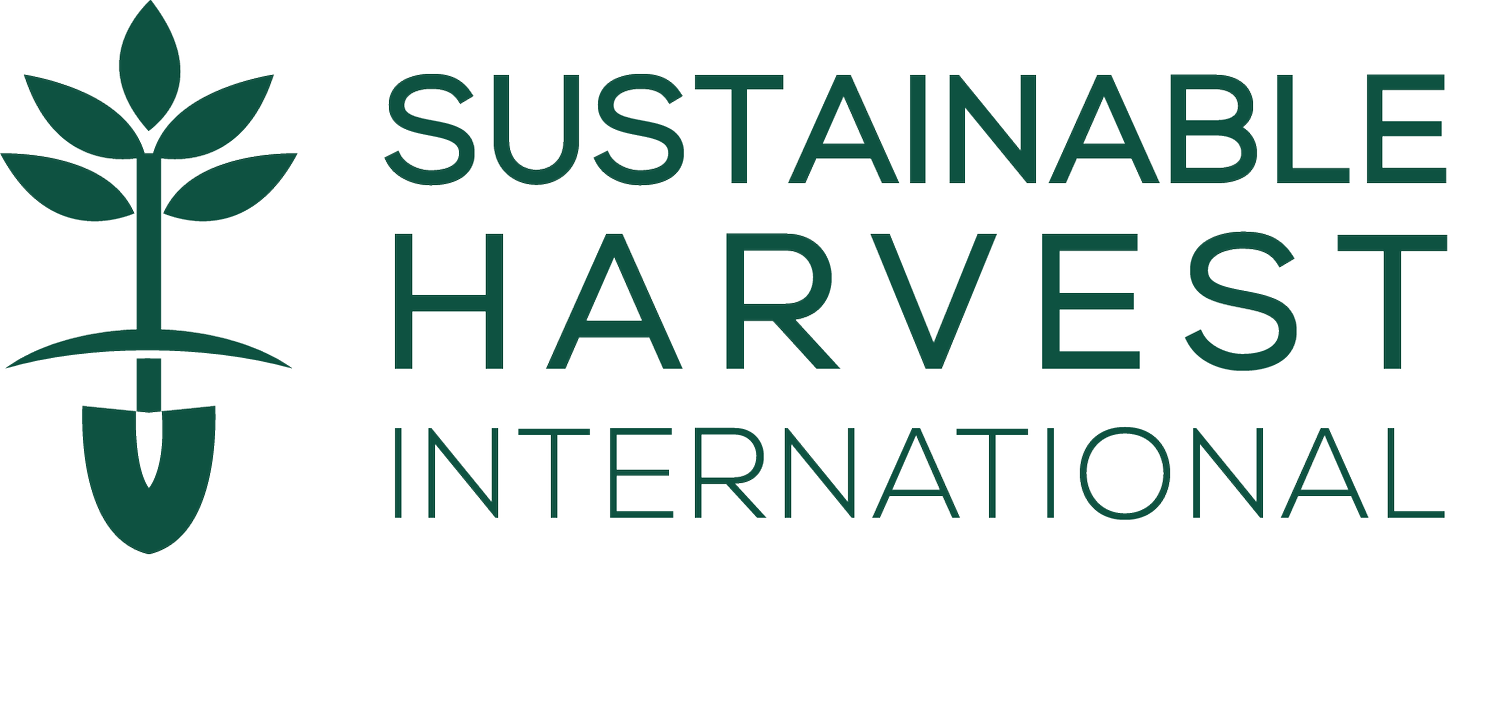by Florence Reed
Florence Reed (left) holding a gift from Mirza Moqeem Baig (right) at the One Health Summit
This past October, I had the honor of representing Sustainable Harvest International at the One Health Summit in Davos, Switzerland, where I gave a presentation on how healthy farms lead to healthy people and a healthy planet. You can read the full abstract here. (Thanks to our Program Impact Officer, Ricardo Romero, for bringing his academic expertise to the editing of the extended abstract and preparation for my presentation.)
This international summit, sponsored by the United Nations’ Food and Agriculture Organization and its Environmental Program, felt a bit out of my league. The bachelor’s degree I received 25 years ago did not feel like much to stand on when I found myself surrounded by hundreds of highly intelligent doctors, veterinarians, academics, and policy makers from nearly fifty different countries.
“You only know how to treat one species?” I heard one veterinarian ask an MD. This got me thinking about all the species I had learned about from families in Central America. Even subsistence farmers who have not finished primary school have a deep understanding of dozens, if not hundreds, of species of plants and animals. Sustainable Harvest International builds on that knowledge to allow these species to work together in harmony for healthy people, healthy animals, and a healthy planet.
Sustainable Harvest International was one of a select number of development organizations represented at the summit. During my presentation, I was able share an unusual perspective as someone who has spent lots of time in rural communities and on small-scale farms throughout Central America over the last 25 years. In addition, I was able to highlight our organization’s contributions to sustainability on a global scale. Many of my fellow delegates were interested in how my observations on the ground related to their research, policy work, and rural development programs in other countries.
The flip side was true for me, as many of the presenters confirmed the value of our program or shed new light on the impacts of our work. For example, Her Royal Highness Princess Chulabhorn of Thailand (who is also the founder of Chulabhorn Research Institute) shared her observation that the environment, especially when contaminated with cancer-causing pesticides, is a major determinant of health. I was proud to know that for more than 18 years Sustainable Harvest International has encouraged the creation of healthy agro-ecosystems where pests are kept in check naturally without the use of synthetic pesticides.
In addition to presenting new data on other problems countered by our program such as pesticide pollution and antibiotic resistance, many of the presenters addressed the troubling consequences of tropical deforestation on human health. Ecomore, an NGO working in Laos, found malaria cases more than doubled when natural forests were replaced by rubber tree monocultures. Another delegate’s presentation showed how deforestation fuels the spread of Ebola. The connection between deforestation and infectious disease was not even on my radar screen before this year, but this was the second event I attended in 2015 where it was a major topic. It seems that no matter how many years I continue this work, I keep discovering new benefits from our preservation of tropical forests and creation of healthy, sustainable farms.
I’m pretty sure that Ricardo Romero, our Program Impact Officer, would agree with the presentation on One Health Metrics, which concluded that sustainability metrics are the most difficult to define. We’ve always found it easy to count the millions of trees planted by our program participants, but we have a harder time proving their long-term impact on the well-being of the people who plant them, their communities, and our planet. As a result of my participation in the summit, however, I feel we’ve come one step closer to defining the long-term impacts of our work.
My experience at the One Health Summit strengthened my resolve to find additional financial support for Sustainable Harvest International. Nearly every presentation reaffirmed how many ways our program is important for healthy humans, healthy animals, and a healthy planet. In addition, I met yet another NGO leader, Mirza Moqeem Baig, who wants to implement our program in his country. Mirza founded the National Rural Development Program in Pakistan five years before I founded Sustainable Harvest International.
With so much global interest in our sustainable farming program, we are poised to make a significant contribution towards sustainable One Health for:
500 million farmers practicing slash-and-burn farming around the world
100,000 acres of tropical forest every
800 million people who go hungry every day
Going forward, I look forward to seeing how we’ll leverage the new information I gleaned from the summit. A key goal will be finding the additional funds to effectively share the program we have proven successful in Central America, while continuing to strengthen and expand it there too.
To learn more about One Health, click here.



